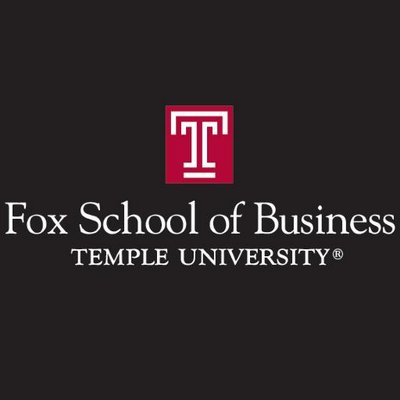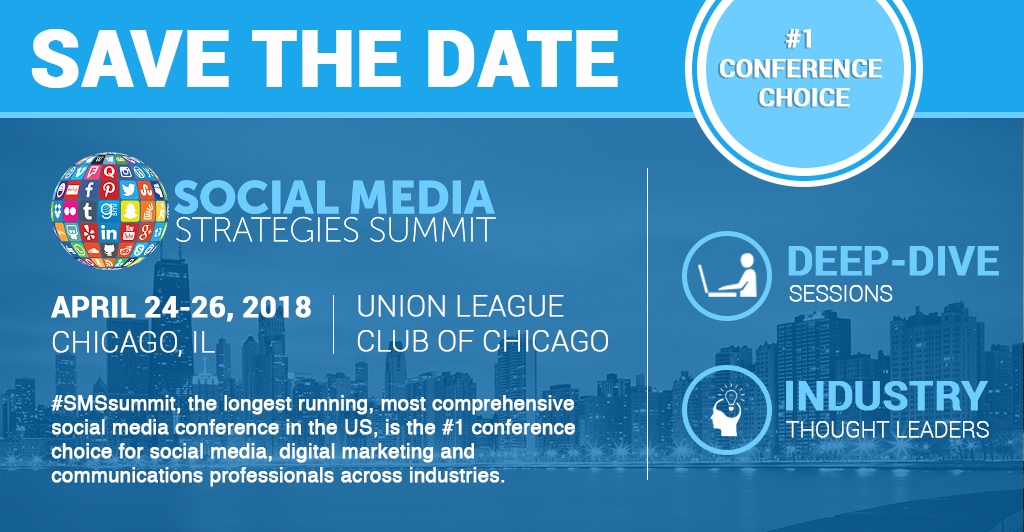Hear from Temple University below about what programs they are implementing to further students education in the Social Media Marketing Industry. Temple University will be at Social Media Strategies Summit, Chicago this April 24-26th, 2018.
In today’s digital economy, Temple University is utilizing an online curriculum to prepare students to become the next digital marketing leaders. In 2014, Temple launched an innovative new, wholly online Master’s program, focused on both Information Systems and Marketing, interleaving coursework from both disciplines to create the MS-Digital Innovation in Marketing program (MS-DIM).
“We saw a need in the marketplace for marketers with a technical skillset, ” said the program’s Senior Associate Director, Joe Allegra. He continued, “We started looking at what other institutions were doing to meet this need and found that there was no degree like this on the market.”
Realizing that the today’s digital marketer needs the skills to “talk the talk” with technology, understanding data analytics, user experience and process management, in addition to the current skillset of social, content and building a brand in the digital age, the program administrators created a curriculum that set out to integrate marketing and technology, showcasing the intersection of the two through coursework, case studies and student led projects.
Once the proposal for the curriculum was designed, the next step was to define how the curriculum would be delivered. In today’s higher education marketplace, space and resources are precious – just as they are in corporate America. Our workforce is also traveling, balancing families and careers and mobile. Critical to the success was designing a program that was convenient, accessible and efficient. Looking at each of those factors, the team decided that online delivery would best suit this market. According to the Babson Survey Group’s Report “Grade Increase”, online education enrollment is rising at a faster rate than ever before.
Despite the rise, the challenges faced in online education center around student engagement, student retention and program accreditation. When designing the delivery of the MS-DIM, administrators looked at ways to increase student retention with a focus on student engagement. Enter the MS-DIM Community model. Through this model, MS-DIM faculty deliver coursework wholly online, capitalizing on face to face engagement though weekly WebEx course meetings.

The innovative two course in one model utilized by the MS-DIM program showcases the intersection of marketing and technology by pairing a marketing and an information systems based course together each semester. Students spend two weeks with the marketing professor, then spend the next two weeks with the information systems professor, looking at the ways the technology supports the marketing and the marketing is grounded in the technology. Through the courses, professors discuss previous topics covered and showcase the dependency. An example – in the digital brand management course, which is linked with the business intelligence course, the professor brings in many examples of how students can use data to pivot the brand and make high level branding decisions based on what information is pulled from the data.
There are several key aspects to the program that generate engagement and highlight the mission of the MS-DIM Master’s degree.
- Course delivery – through the Learnathon, students interact with professors as though they were in a traditional classroom. Think about this like a lecture based class, only conducted through WebEx. Every Wednesday night, students log in from offices in PA, living rooms in NC and hotel rooms in GA to discuss the current topics. Everyone flips on their camera and while we can’t tell if they have on pajama bottoms, if you watch the interaction between students and faculty, you’ll note that they are actively engaged – asking questions, sharing anecdotes and providing insight on the problems and opportunities faced by today’s digital marketer.
- Final Projects – the courses are designed so that each semester culminates on a final project that breaks down the barriers of technology and marketing. Students, in teams, create final projects that highlight and showcase what they have learned in the respective courses. Students work together through a variety of collaboration tools and present their final projects on the last night of the semester, via WebEx. Often “passing the presenter ball” like pros to each other as they walk through their ideas.
- Capstone Project – the Capstone project is the culminating event of the MS-DIM program. Again, students work in self-selected teams from across the US to develop and deliver a solution to an opportunity they see in the market. Students develop prototypes, social media strategy plans and provide infographics, among other deliverables, that support their project and the place it will fill in the market. The students come up with amazing ideas, some of which have been pitched to investors for future funding.
Those three aspects of the MS-DIM program highlight just a few of the ways the program engages, interacts and educates. The program also uses a proprietary learning management system that incorporates the students’ creation of ideas by including personal blog posts with every course and on the students professional portfolio. Students develop these posts and many times share them with their broader social networks throughout the course.

One additional note is the role of the MS-DIM’s advisory council. Administrators pair with industry executives to find out what is hot in the market. Faculty members consist of a mix of Temple University faculty and digital executives who are working hands on in the field. This allows students to get a holistic picture of the education and the industry, as well as make connections with today’s leaders in digital. The MS-DIM program also offers free, educational webinars on all topics digital, providing tips, tricks and education to anyone that would like to participate.
So, has this innovation in the classroom and in the curriculum worked? The statistics would point to yes. Now in its third year, the MS-DIM program reports a 94% retention rate across cohorts and has successfully graduated two classes. The third cohort is almost halfway through the program – and they started in the Fall of 2017. Students are reporting salary increases, job placements and even sending notes that they’ve found their dream job thanks to their Master’s degree in Digital Innovation in Marketing.
I’d love to chat more about the program with you – stop by and see us at SMSS Chicago – we’ll be there and looking to meet people like you – those looking for the intersection of technology and marketing!










